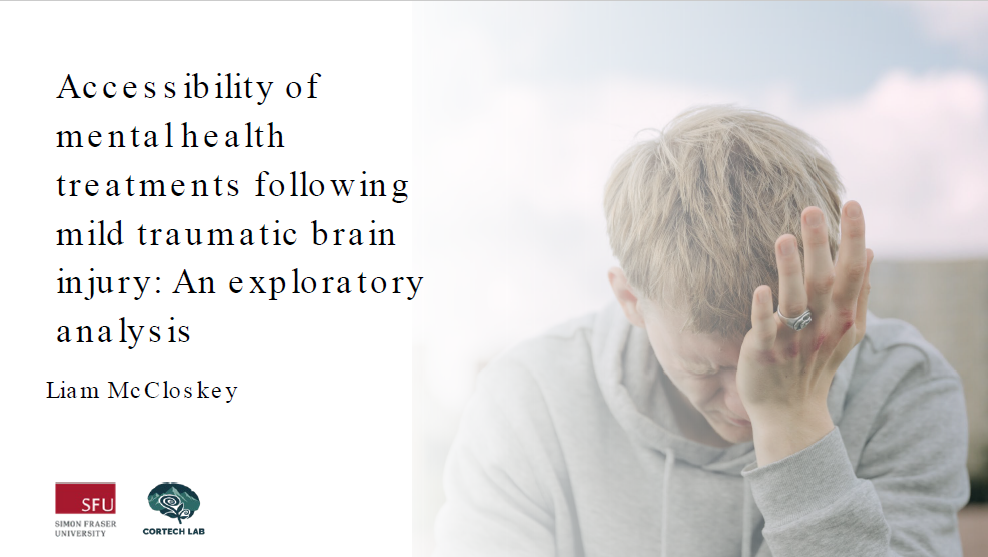Accessibility of mental health treatment following mild traumatic brain injury: An exploratory analysis
Main Article Content
Abstract
A sizable minority of those who sustain a mild traumatic brain injury (mTBI) experience prolonged recovery often marked by emotional distress. Barriers and facilitators to mental health help-seeking in the general population are well-understood; however, information in the mTBI context is limited. This study aimed to determine: (1) the rate of worsened mental health post-mTBI, (2) proportion of those seeking mental health treatment, (3) perceived barriers to mental health care, and (4) predictors of help-seeking behavior. Participants aged 14-86 with a previously diagnosed mTBI (n = 290) completed questionnaires assessing demographic and clinical characteristics, mTBI history, and barriers to help-seeking. Frequency tables and proportions are reported to meet aims 1-3 and a binomial logistic regression were used to address the studies aim 4. 28.9 of participants experienced a subjective decline in their mental health status post-mTBI and 27% of those did not seek help. Prominent barriers to care in this subgroup were the cost of services (34.8%) and stigma (34.8%). Demographic and injury-related factors, such as education level, employment status, and mechanism of injury, significantly predicted help-seeking. Almost a third of individuals reported decline in mental health post mTBI and many did not receive mental health care. Like the general population, cost is a critical barrier to mental health treatment seeking after mTBI. However, the stigma of seeking mental health services is potentially exacerbated by the additional stigma associated with brain injury, possibly creating a double stigma. The context that a person suffers their mTBI impacts their treatment seeking process.
Article Details

This work is licensed under a Creative Commons Attribution-NonCommercial-NoDerivatives 4.0 International License.

